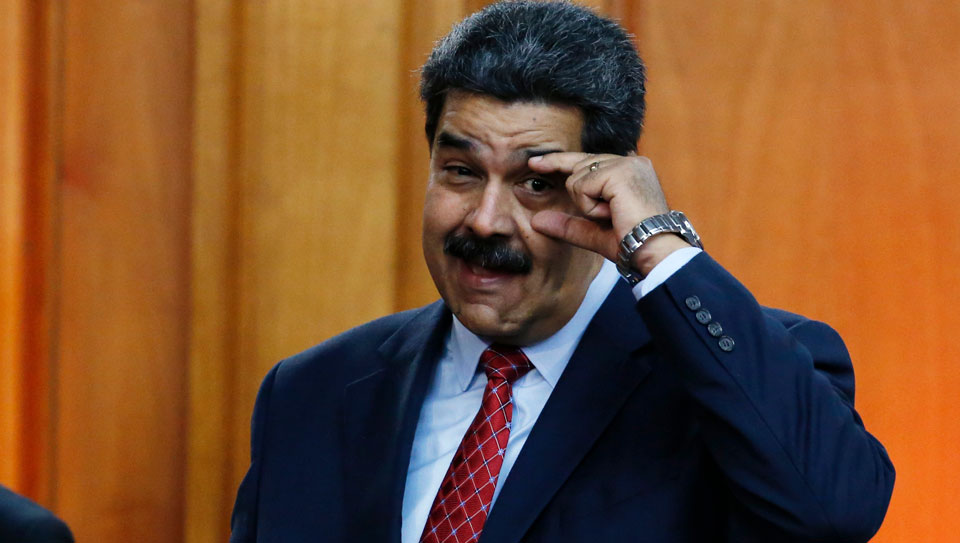US Imposes Sweeping Sanctions on Venezuelan Government

This
measure is expected to be far more damaging for Venezuela's socialist
government than previous sanctions.
The
move is the latest aimed at increasing pressure on President Nicolás Maduro to
step down.
The
US is one of more than 50 nations that do not recognise Mr Maduro as
Venezuela's legitimate president.
It has instead given
its backing to the head of the National Assembly, Juan Guaidó, who declared
himself president in January.
President Trump
signed an executive order which states that "all property and interests in
property of the government of Venezuela that are in the United States (...) are
blocked and may not be transferred, paid, exported, withdrawn, or otherwise
dealt in".
The
order also bars transactions with Venezuelan authorities whose assets are
blocked, stating that "the making of any contribution or provision of
funds, goods, or services by, to, or for the benefit of any person whose
property and interests in property are blocked pursuant to this order".

"The receipt of
any contribution or provision of funds, goods, or services from any such
person," is also banned.
The move really
ramps up the pressure on President Maduro by not only targeting his
government's assets in the US but also the individuals, companies and countries
doing business with his government.
It
means that Venezuela will face many of the US restrictions on Cuba, Iran, North
Korea and Syria.
It
goes much further than previous US sanctions which targeted Venezuelan leaders,
including President Maduro himself, and specific state-run entities such as oil
company PDVSA, Venezuela's central bank and its development bank.
In a letter to the
US Congress, President Trump wrote that he had imposed the measure "in
light of the continued usurpation of power by Nicolás Maduro and persons affiliated
with him, as well as human rights abuses, arbitrary arrest and detention of
Venezuelan citizens".
The
aim is to further isolate the Venezuelan government and attempt to cut it off
from the support it has been getting from its most powerful allies, China and
Russia.
As previous
sanctions have not succeeded in removing President Maduro from power, President
Trump is tightening the screws in an attempt to speed up his removal from
power.
The
US government has said exemptions will include the provision of humanitarian
goods, food and medicine.
Venezuela
has long blamed US sanctions for the dire state of its economy.
More than six months
have passed since Juan Guaidó declared himself interim president arguing that
Mr Maduro re-election last year was neither fraudulent.
Mr
Guaidó has since managed to secure the backing of more than 50 nations, but
failed to remove Mr Maduro from power.
Meanwhile,
Venezuelans continue to flee the political and economic crisis in huge numbers.
More than four million are now living abroad according to United Nations
figures.
International
pressure to solve the Venezuelan crisis is mounting with more than 50 countries
currently meeting in the Peruvian capital, Lima, to discuss a solution.
Mr Guaidó has
welcomed the new measure arguing that it punishes those "who do business
with the regime". He argues that the freeze seeks to "protect
Venezuelans" by punishing those "who uphold the usurpation,
benefitting from the hunger and the pain of Venezuelans".
Neither
President Maduro nor his foreign minister, Jorge Arreaza, have so far reacted
to news of the freeze.
The
US is likely to announce more punitive measures against Venezuela at the
meeting on Venezuela's crisis in Lima.
US
National Security Advisor John Bolton and commerce secretary Wilbur Ross are
both attending the gathering and the former has already said that the new
measures would be "sweeping (...) with a lot of potential
consequences".

No comments